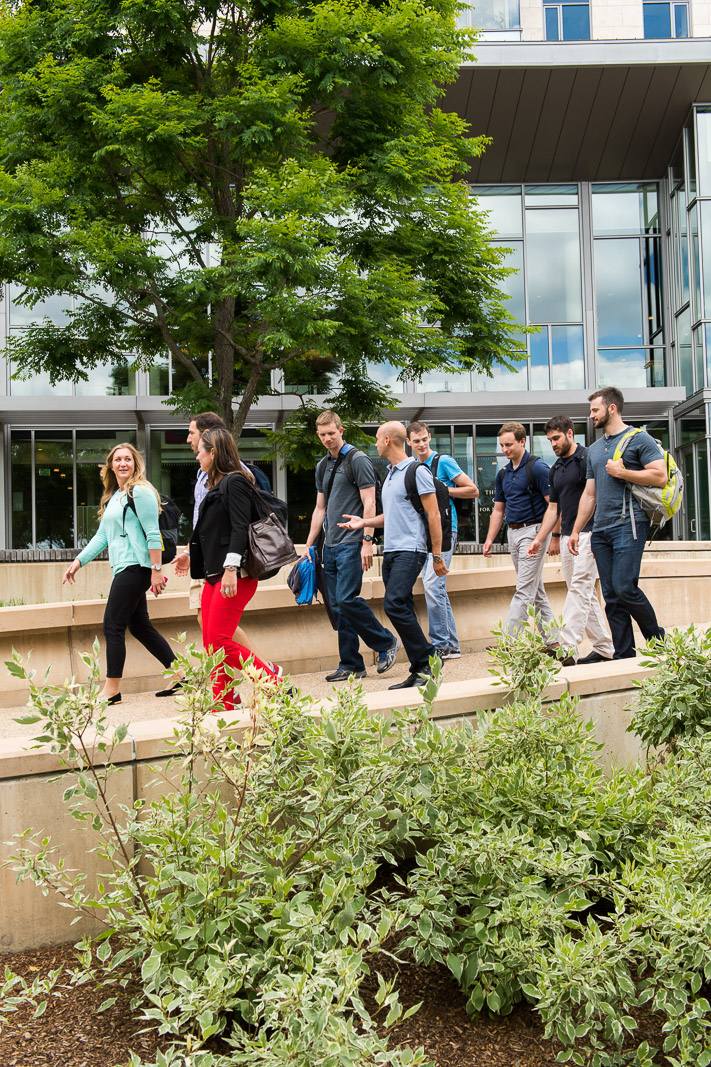The MIT School of Engineering’s mission is “to educate the next generation of engineering leaders, to create new knowledge, and to serve society.”
The largest of MIT’s five schools, the School of Engineering comprises about 70 percent of the Institute’s undergraduate majors and 45 percent of graduate students. Just over a third of MIT’s faculty are in the school, and they generate more than half of the sponsored research at the Institute.
MIT is a top-ranked engineering school. In 2022, U.S. News & World Report ranked MIT’s aerospace/aeronautical/astronautical engineering, chemical engineering, computer engineering, electrical/ electronic/communications engineering, materials engineering, and mechanical engineering in first. Also notably ranked were civil engineering (7), environmental/environmental health engineering (9), and nuclear engineering (2).
LGO students are integrated into the School of Engineering to connect with world-class faculty, innovative research, and the broader engineering community while pursuing their dual degree. In line with MIT’s mens et manus motto, the School of Engineering supports the real-time and collaborative application of research to industry. As a dual degree program, LGO bridges business and engineering, both through the curriculum for two degrees as well as in the community network.
Leaders for Global Operations partners with six engineering departments and the Operations Research Center for MS/MBA dual degree options. Students are encouraged to choose a field based on academic background, professional interests, and research goals:
- Aeronautics and Astronautics
- Autonomous Systems & Decision-Making
- Computational Science & Engineering
- Earth & Space Sciences
- Human-System Collaboration
- Systems Design & Engineering
- Transportation & Exploration
- Vehicle Design & Engineering
- Chemical Engineering
- Biomedical and Biotechnology
- Catalysis and Reaction Engineering
- Energy
- Environment and Sustainability
- Materials
- Math and Computational Systems
- Transport and Thermodynamics
- Civil and Environmental Engineering
- Climate, Environment, and Life Sciences
- Resilient Systems and Mobility
- Food and Water Security
- Sustainable Materials and Infrastructure
- Electrical Engineering and Computer Science
- Electrical Engineering
- Computer Science
- Artificial Intelligence & Decision Making
- Mechanical Engineering
- Mechanics
- Design, Manufacturing and Product Development
- Controls, Instrumentation and Robotics
- Energy Science and Engineering
- Ocean Science and Engineering
- Bioengineering
- Micro and Nanotechnology
- Nuclear Science and Engineering
- Fission
- Fusion
- Nuclear Security
- Radiation Sources, Detection & Measurement
- Modeling & Simulation
- Materials in Extreme Environments
- Operations Research
- Analytics
- Statistics and Machine Learning
- Operations Management
- Optimization
- Economics and Finance
- Transportation Systems
- Applied Operations Research
- Probabilistic Modeling




